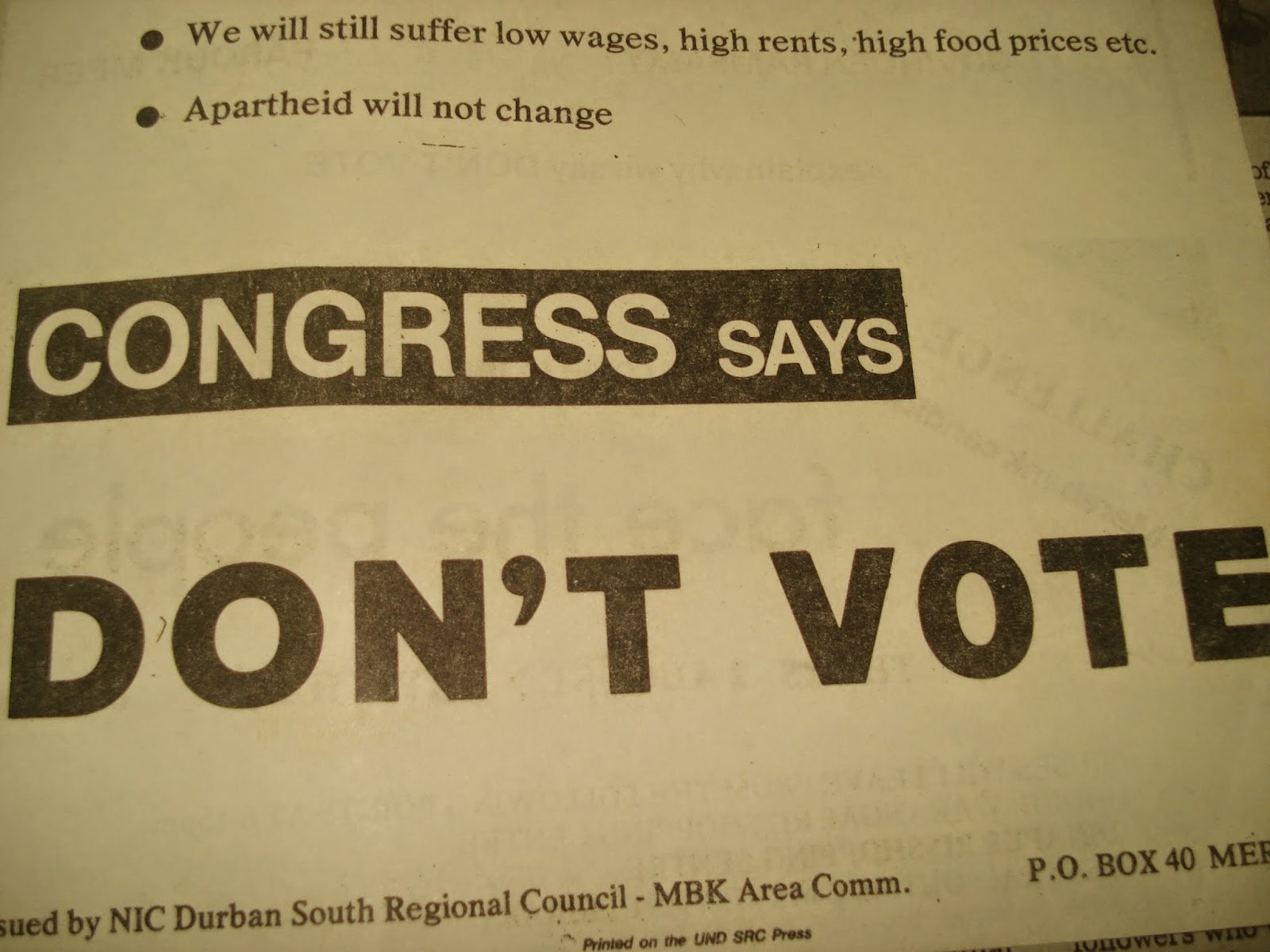One of the doyens of the liberation struggles was Billy Nair, the son of indentured labourers, who was imprisoned on Robben Island for 20 years for fighting against white minority rule and domination. After his death at the age of 79 on October 23 2008, Subry Govender compiled a three-part series as a special tribute in honour of this struggle icon.
We publish the three reports as part of our information for those who are interested in learning about OUR RICH HISTORY. This is Part 3......
(Billy Nair (left) in a Natal Indian Congress message with George Sewpersadh)
By Subry Govender
On Friday, 14th November 2008 hundreds of Billy Nair's comrades and struggle friends gathered at the Shree Veerabraga Emperumal Temple Hall in Tongaat on the KwaZulu-Natal north coast to hold a memorial service in his honour.
Among those who paid special tributes to the struggle icon who was imprisoned for 20 years on Robben Island included the Deputy leader of the ANC in KwaZulu-Natal, Willis Mchunu; Yusuf Bhamjee, a member of the provincial executive member of the ANC and former Natal Indian Congress activist, Swaminathan Gounden.
There were also former activists of the calibre of Pravin Gordhan, who was the Receiver of Revenue at that time; former Robben Island prisoner, Sunny Singh; and Paud Devadas David, who was a former leader of the Natal Indian Congress.
The memorial service was held only a day after new developments that saw struggle stalwart, Professor Fatima Meer, throwing her weight behind the breakaway, Congress of Democrats, which later became of the Congress of the People(COPE).
One of its leaders, former defence minister, Mosioua Lekota, ws in Durban to gain Professor Meer's support. Lekota also held talks with other former activists.
During his life time and after he was released from Robben Island in February 1984, Blly Nair constantly spoke out against personality differences and factions within the progressive forces. There's no doubt that if he was alive today he would have spoken out boldly in favour of unity and called for comrades to resolve their differences.
(Students at UDW saluting Billy Nair)
(Students at UDW in 1985 listening to Billy Nair)
"Close ranks, unite as never before"
He made this call when he spoke at a protest meeting at the University of Durban-Westville in 1985:
"Here I want to emphasise this and I am making this call in all seriousness," he told the students. We must not point fingers and say hey you UDF, hey you AZASM, but for us to close ranks. There is need for us not to engage in debates or polemics not to split hairs from grassroots right up to leadership level.
"Close ranks, unite as never before. Bring all democratic forces - white AND BLACK - african, coloured, Indian and white - the trade unions , womens organisations, political, non-political, church whatever. All those opposed to apartheid should close ranks and unite"
(A brave photographer (I forget his name) taking pictures of riot police action against protests headed by Billy Nair and other NIC leaders)
PUPPETS SHOULD BE SHOWN THE DOOR
(Police keeping watch on anti-apartheid activists during an address by Billy Nair and other NIC leaders)
Billy Nair would have reminded the comrades what the struggle was all about:
"We have reached a situation where we have to decide whether we are going to allow this government and its puppets to continue to rule over us. The time has come when we have to stop it. We have to embark on determined efforts to remove this regime from power before it causes more destruction."
Most former activists are currently involved in a programme to unite the progressive forces. The rank and file are hoping that they will live up to the morals, values and principles set by leaders of the calibre of Billy Nair. - ends: subrygovender@gmail.com



































